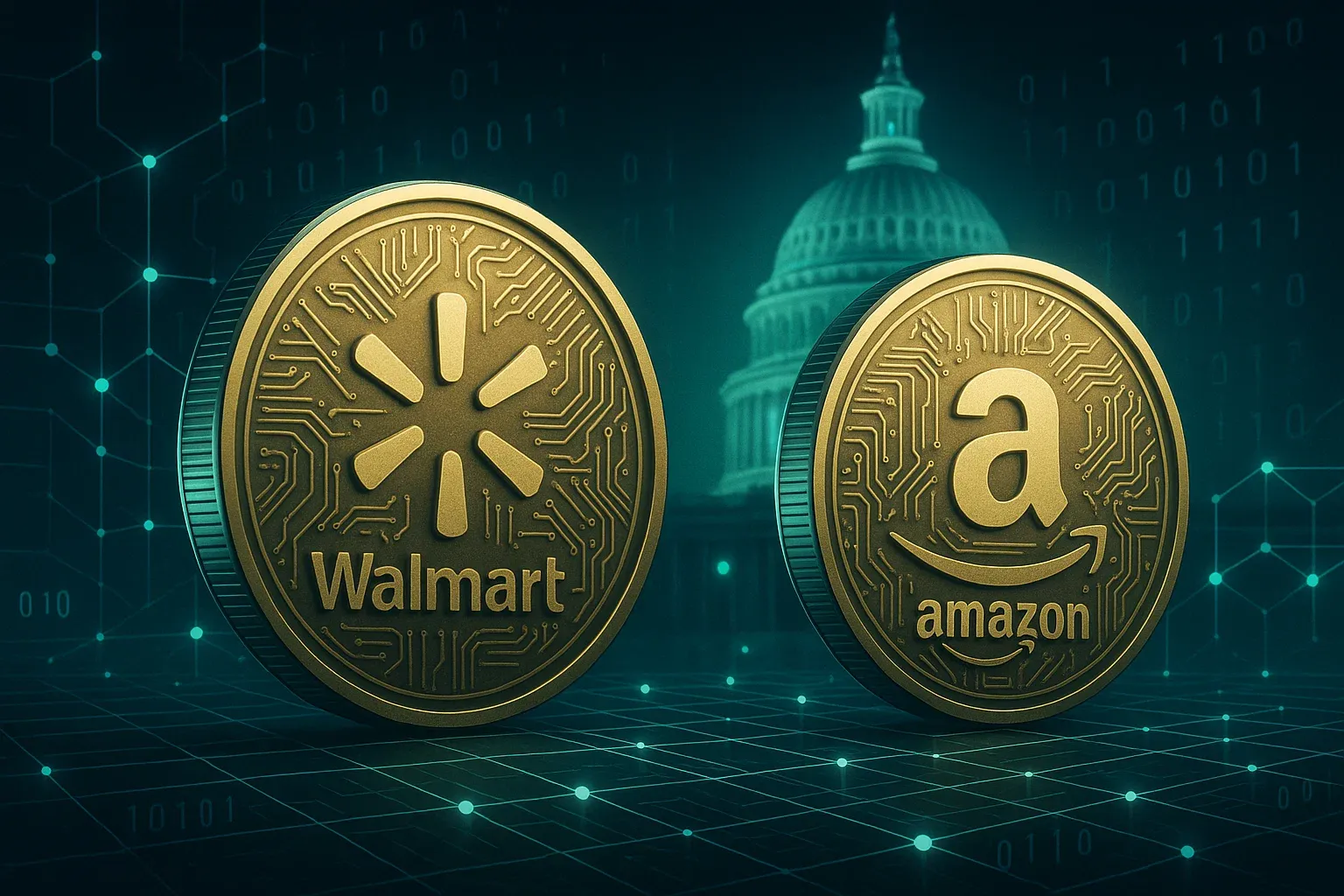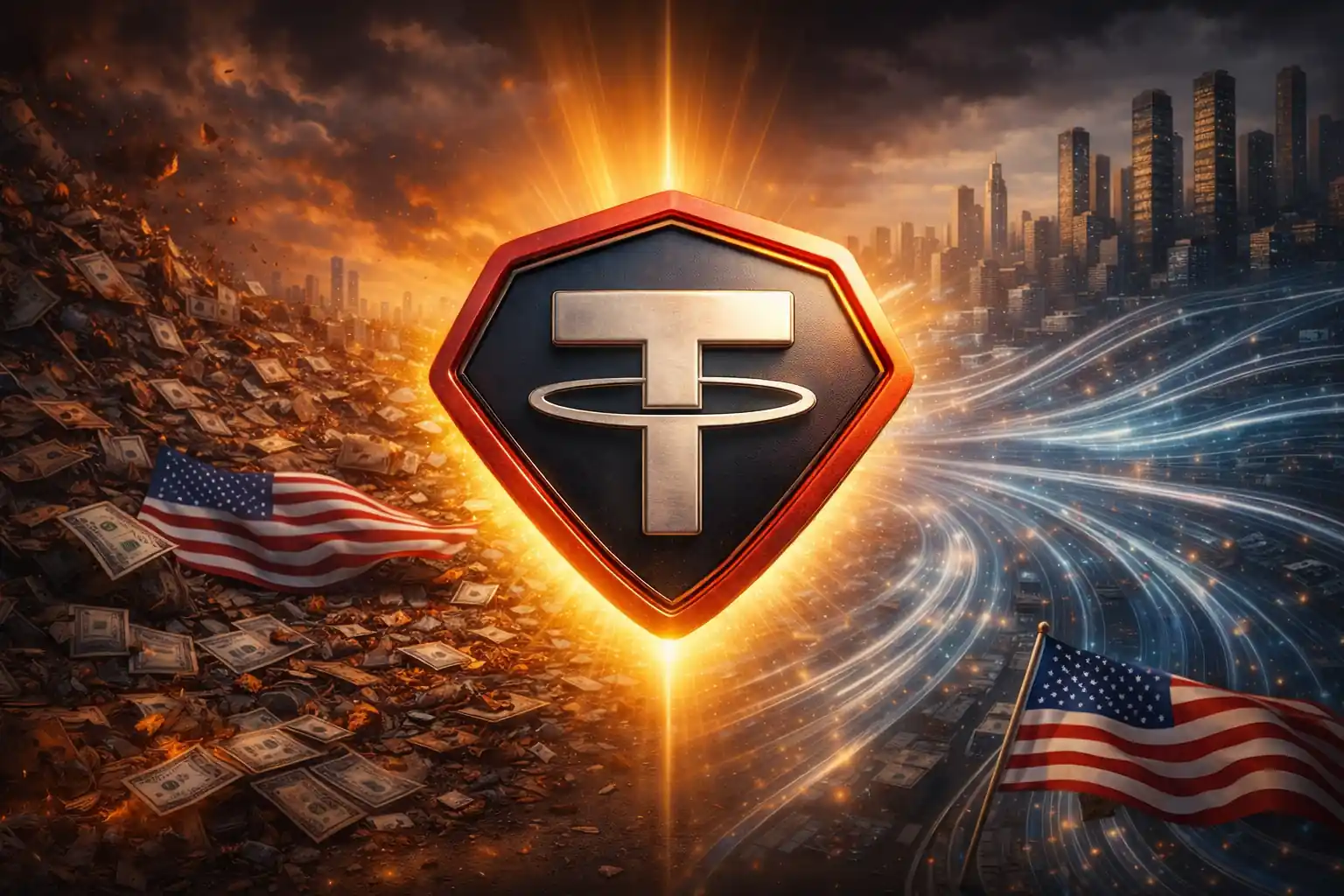According to reports, Walmart and Amazon are developing stablecoins that could transform payment systems in the retail sector, just as the US Senate prepares to vote on a significant bill to regulate the issuance of the digital dollar.
The Senate is set to conduct the final vote on the "GENIUS Act" (S.394) after approval in committee and passage of the debate stage scheduled for 17 June.
According to Bloomberg and The Wall Street Journal, both retail giants are evaluating the feasibility of launching their own stablecoins, likely pegged to the US dollar or US Treasury securities. Internal teams are analysing potential technology partners and regulatory compliance paths, although no official applications or public announcements have been made so far. The exploration of this initiative appears to be motivated primarily by the goal of achieving significant savings on payment processing fees.
Card processing fees that Walmart and Amazon incur range from 1% to 3% and amount to about $14 billion each year. A 1 per cent reduction in these fees would generate about $1 billion annually in EBITDA benefits for each company, demonstrating the strong economic motivation behind reducing costs.
The GENIUS Act, sponsored by Senator Bill Hagerty (R-TN), aims to create a federal regulatory framework for stablecoins for payments. The bill requires tokens to be fully collateralized by cash or short-term Treasury securities and provides for monthly reserve reports, as well as establishing priority for token holders in the event of issuer bankruptcy.
Any issuer with operations over $10 billion would be subject to both state and federal oversight. The bipartisan bill has won the support of Senators Kirsten Gillibrand (D-NY) and Cynthia Lummis (R-WY), who see it as a means to protect consumers, promote innovation and maintain the international role of the dollar.
The payments industry is showing increasing support for regulated tokenized dollars, while retailer interest in the development is growing. According to a recent survey, 85% of companies see transparent regulations as a 'go-ahead' for adoption, while nearly half see real-time settlement as a more important benefit than cost reduction alone. Major US banks are also studying a collaborative stabilecoin project to maintain their role in the settlement layers.
The GENIUS Act represents a significant change from the cautious approach previously adopted by Washington, especially after the failure of Facebook's Diem project. The GENIUS initiative has a well-defined scope: it excludes algorithmic assets, requires full reserve coverage, and focuses exclusively on payment functionality. The policy framework aims to create an acceptable policy path for private sector technological innovation while protecting monetary independence.
The entry of Walmart and Amazon into the stablecoin space would mark a historic moment, with these retail giants becoming the first companies to issue digital dollars under a defined federal framework. Their huge consumer bases and transaction volumes would accelerate the adoption of stablecoins, making the use of digital dollars a standard in e-commerce payments and the supply chain. On 17 June, the Senate will vote on the GENIUS framework, the green light of which is essential to make digital dollars issued by retailers operational after this initial planning phase.








